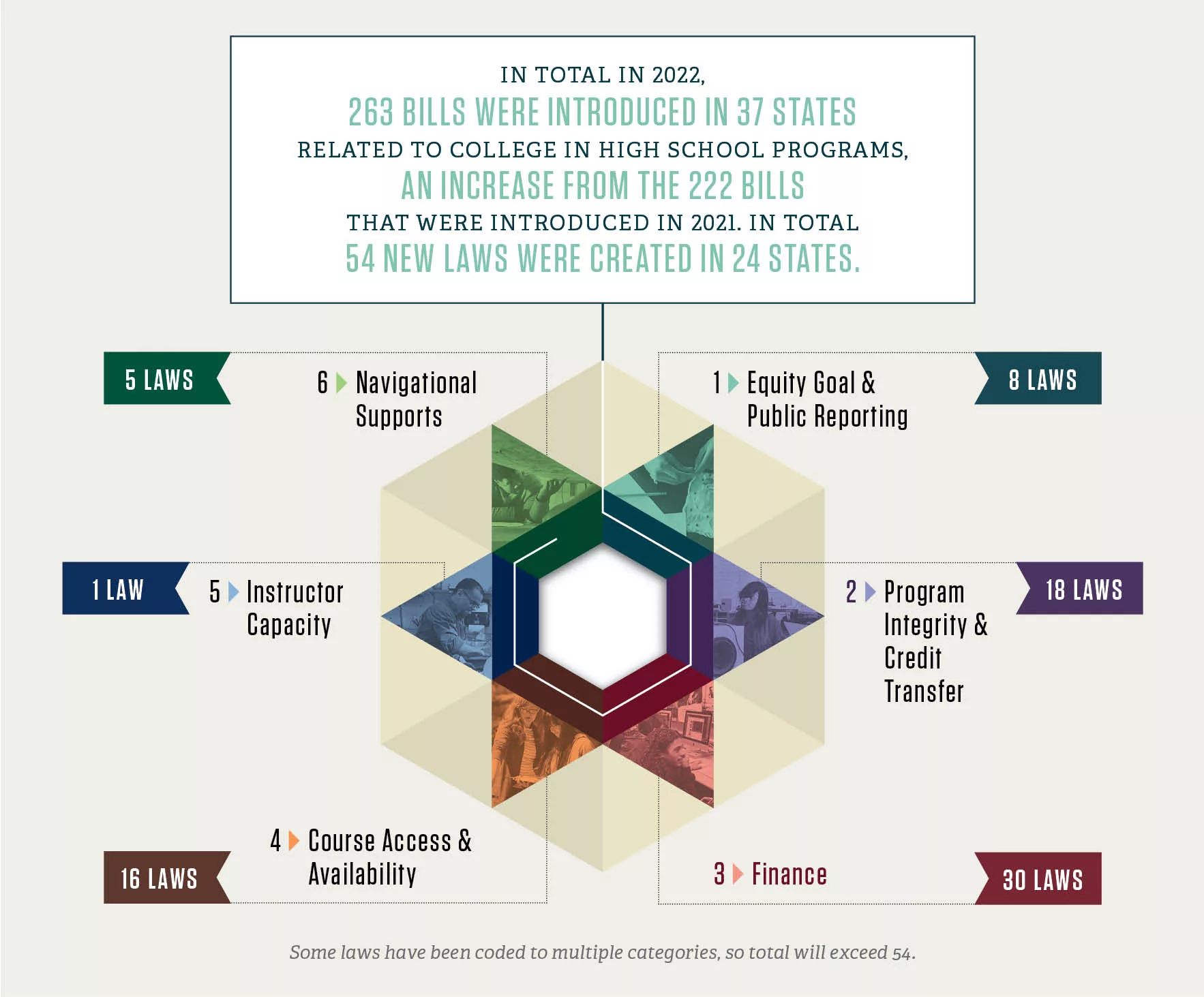
In January 2023, CHSA released a 2022 Year in Review for its State Legislative Tracker. This policy resource summarizes the new state laws adopted in 2022, and summarizes the key trends.
Policies impacting college in high school programs such as dual enrollment, concurrent enrollment, and early college high school continued to be significant across the country in 2022, with an overall increase in the number of bills introduced in 2022 over 2021, and the number of bills that became law. In total, 263 bills were introduced in 37 states
Using the College in High School Alliance’s framework for state policy explained in Unlocking Potential: A State Policy Roadmap for Equity and Quality in College in High School Programs, breaking down the enacted laws by the six categories of the framework shows that the biggest areas of activity this year were in Finance and Program Integrity and Credit Transfer.
Notable New Laws:
- California AB 181 - This new law provides a significant $200 million investment into establishing a competitive grant program to support the expansion of high-quality dual enrollment programs in the state of California and supports the establishment of new middle or early college high schools.
- Colorado HB 22-1390 - A new law in Colorado expands the Accelerating Students Through Concurrent Enrollment (ASCENT) program by eliminating the existing enrollment cap and the requirement that students repay tuition for the courses if they fail.
- Florida SB 2524 - Florida becomes the latest state to make textbooks and other instructional materials free of charge to students. A separate bill, HB 5001, appropriates $11 million to reimburse the costs of instructional materials for postsecondary institutions.
- Louisiana HB 333 - A new law in Louisiana requires the State Board of Elementary and Secondary Education to develop advisement policies that would include informing and assisting students and their parents in the selection and scheduling of advanced courses and early college opportunities, such as dual enrollment.
- Pennsylvania HB 1642 - This omnibus education bill creates a new requirement that all Pennsylvania high schools enter into an agreement with an institution of higher education to allow students the opportunity to earn college credits in high school, which has the prospect to significantly expand access to dual enrollment in Pennsylvania.
Other Trends:
In 2022, perhaps due to a favorable budget environment for education as a result of significant federal investments through the American Rescue Plan, a number of states continue to focus on funding for dual enrollment and looking at ways to reduce or eliminate expenses for students. This included the major $200 million investment in dual enrollment in California, but also included a new law in Florida eliminating the cost of instructional materials for dual enrollment students.
This past year also saw a notable increase in the number of laws passed that impacted Navigational Supports, with 5 new laws in 2022 (compared to two in 2021 and one in 2020). Attention at the state level is starting to turn more seriously towards questions about how best to support students through these programs, and so we may see this category continue to receive attention in future years.
Summaries of each of the new laws impacting college in high school programs are included in the full resource.
For summaries and more information about all of the bills introduced in 2022, visit the College in High School Alliance’s State Legislative and Regulatory Tracker.

